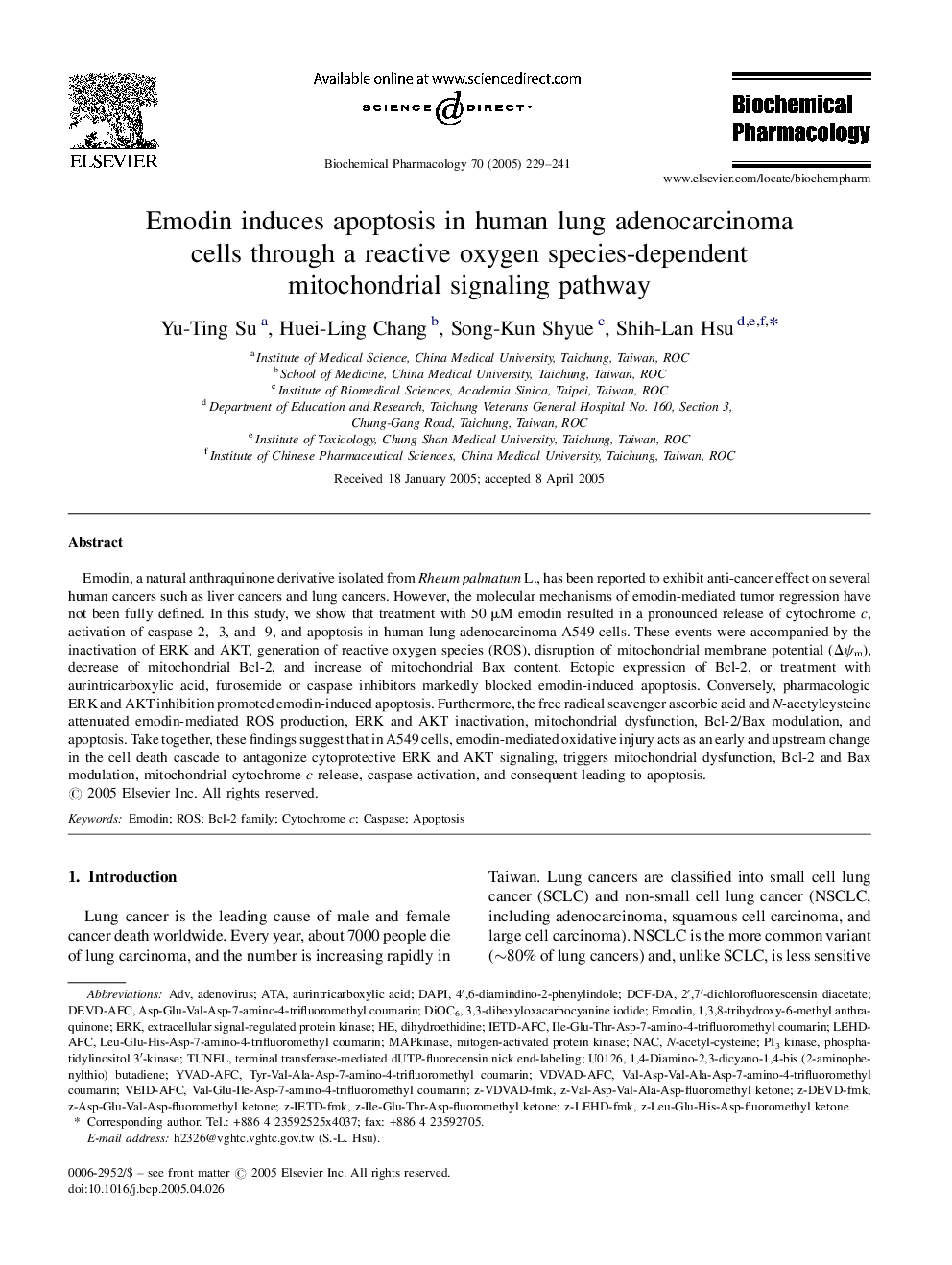| Article ID | Journal | Published Year | Pages | File Type |
|---|---|---|---|---|
| 9001915 | Biochemical Pharmacology | 2005 | 13 Pages |
Abstract
Emodin, a natural anthraquinone derivative isolated from Rheum palmatum L., has been reported to exhibit anti-cancer effect on several human cancers such as liver cancers and lung cancers. However, the molecular mechanisms of emodin-mediated tumor regression have not been fully defined. In this study, we show that treatment with 50 μM emodin resulted in a pronounced release of cytochrome c, activation of caspase-2, -3, and -9, and apoptosis in human lung adenocarcinoma A549 cells. These events were accompanied by the inactivation of ERK and AKT, generation of reactive oxygen species (ROS), disruption of mitochondrial membrane potential (ÎÏm), decrease of mitochondrial Bcl-2, and increase of mitochondrial Bax content. Ectopic expression of Bcl-2, or treatment with aurintricarboxylic acid, furosemide or caspase inhibitors markedly blocked emodin-induced apoptosis. Conversely, pharmacologic ERK and AKT inhibition promoted emodin-induced apoptosis. Furthermore, the free radical scavenger ascorbic acid and N-acetylcysteine attenuated emodin-mediated ROS production, ERK and AKT inactivation, mitochondrial dysfunction, Bcl-2/Bax modulation, and apoptosis. Take together, these findings suggest that in A549 cells, emodin-mediated oxidative injury acts as an early and upstream change in the cell death cascade to antagonize cytoprotective ERK and AKT signaling, triggers mitochondrial dysfunction, Bcl-2 and Bax modulation, mitochondrial cytochrome c release, caspase activation, and consequent leading to apoptosis.
Keywords
Related Topics
Health Sciences
Pharmacology, Toxicology and Pharmaceutical Science
Pharmacology
Authors
Yu-Ting Su, Huei-Ling Chang, Song-Kun Shyue, Shih-Lan Hsu,
